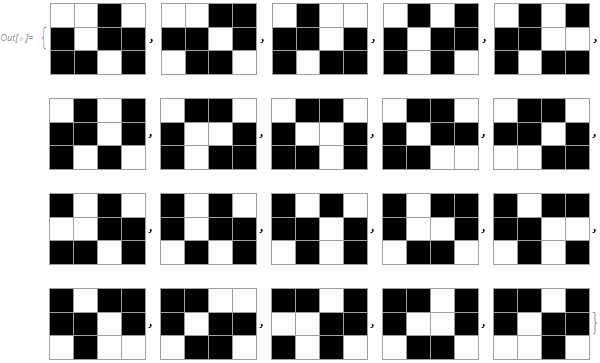To plant trees at the center of each small square in a 3 * 4 rectangular area, it is required that there should be no continuous number of three (or more) trees in three directions of Horizontal, vertical or diagonal, how many methods of planting tree are there in total?
1 means trees can be planted, 0 means trees can not be planted.
but I don't know how to solve this problem with the Mathematical and how to do it?
I already know that the following situations are the ones that meet the requirements of the problem:



